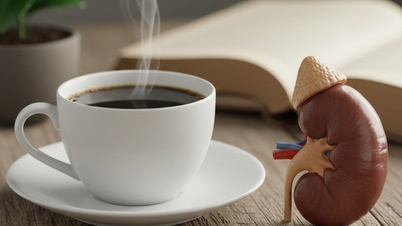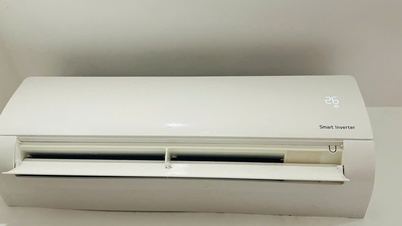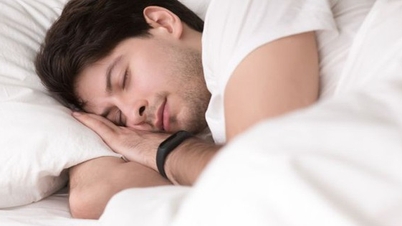Sleep researcher and doctor Talar Moukhtarian, Associate Professor of Psychology at Warwick University School of Medicine (UK), will explain how to take a nap for optimal health.
Dr. Talar Moukhtarian says: Napping is a double-edged sword. If done correctly, it can be an effective way to support mental and physical health. If done incorrectly, it can be harmful and even make it difficult to get a good night's sleep.

Napping is a double-edged sword. If done incorrectly, it can leave you feeling sluggish and unable to sleep well at night.
Photo: AI
How long is too long to take an excessive nap?
Dr. Talar notes that napping for more than 30 minutes can make you feel worse upon waking. This is due to "sleep inertia"—a state of lethargy and disorientation resulting from waking up during a deep sleep phase, according to the research journal The Conversation.
When a nap lasts longer than 30 minutes, the brain switches to slow-wave sleep, making waking up much more difficult. Studies show that waking up after deep sleep can leave people feeling sluggish for up to an hour.
What does science say?
Some studies suggest that excessive napping may even be harmful to the heart and lead to illness.
An analysis by the University of Tokyo (Japan) encompassing 21 studies with 307,237 participants found that napping for more than 40 minutes is associated with metabolic syndrome, including increased blood pressure, cholesterol, and blood sugar, as well as excess fat around the waist, increasing the risk of heart disease.

People with chronic insomnia are often advised to avoid napping altogether, as daytime naps can reduce their motivation to sleep at night.
Illustration: AI
A recent study by Ningbo University (China) also showed that napping for more than 30 minutes increases the risk of developing diabetes by 8-21%. For non-diabetic patients, napping for more than 30 minutes may increase the risk of having high mean arterial pressure (HbA1c) and impaired fasting glucose, thereby increasing the risk of developing diabetes later. For diabetic patients, prolonged napping may reduce blood sugar control and increase the risk of complications.
Additionally, Dr. Talar advises against napping too late in the day, as this can reduce the feeling of sleepiness—the body's natural need for sleep—making it more difficult to fall asleep at night.
People who frequently experience insomnia should also consider napping. For some, napping is essential. However, those with chronic insomnia are often advised to avoid napping altogether, as daytime sleep can reduce their motivation to sleep at night.
How to take an effective nap
For an effective nap, timing and environment are crucial. Keeping naps between 10-20 minutes helps prevent lethargy.
The ideal time is before 2 p.m. – napping too late can disrupt the body's natural sleep schedule, advises Dr. Talar, according to The Conversation.
Source: https://thanhnien.vn/bac-si-ngu-trua-bao-nhieu-la-qua-lieu-loi-bat-cap-hai-185250723144029173.htm

































![[Photo] Prime Minister Pham Minh Chinh holds a phone call with the CEO of Russia's Rosatom Corporation.](/_next/image?url=https%3A%2F%2Fvphoto.vietnam.vn%2Fthumb%2F1200x675%2Fvietnam%2Fresource%2FIMAGE%2F2025%2F12%2F11%2F1765464552365_dsc-5295-jpg.webp&w=3840&q=75)












































































Comment (0)